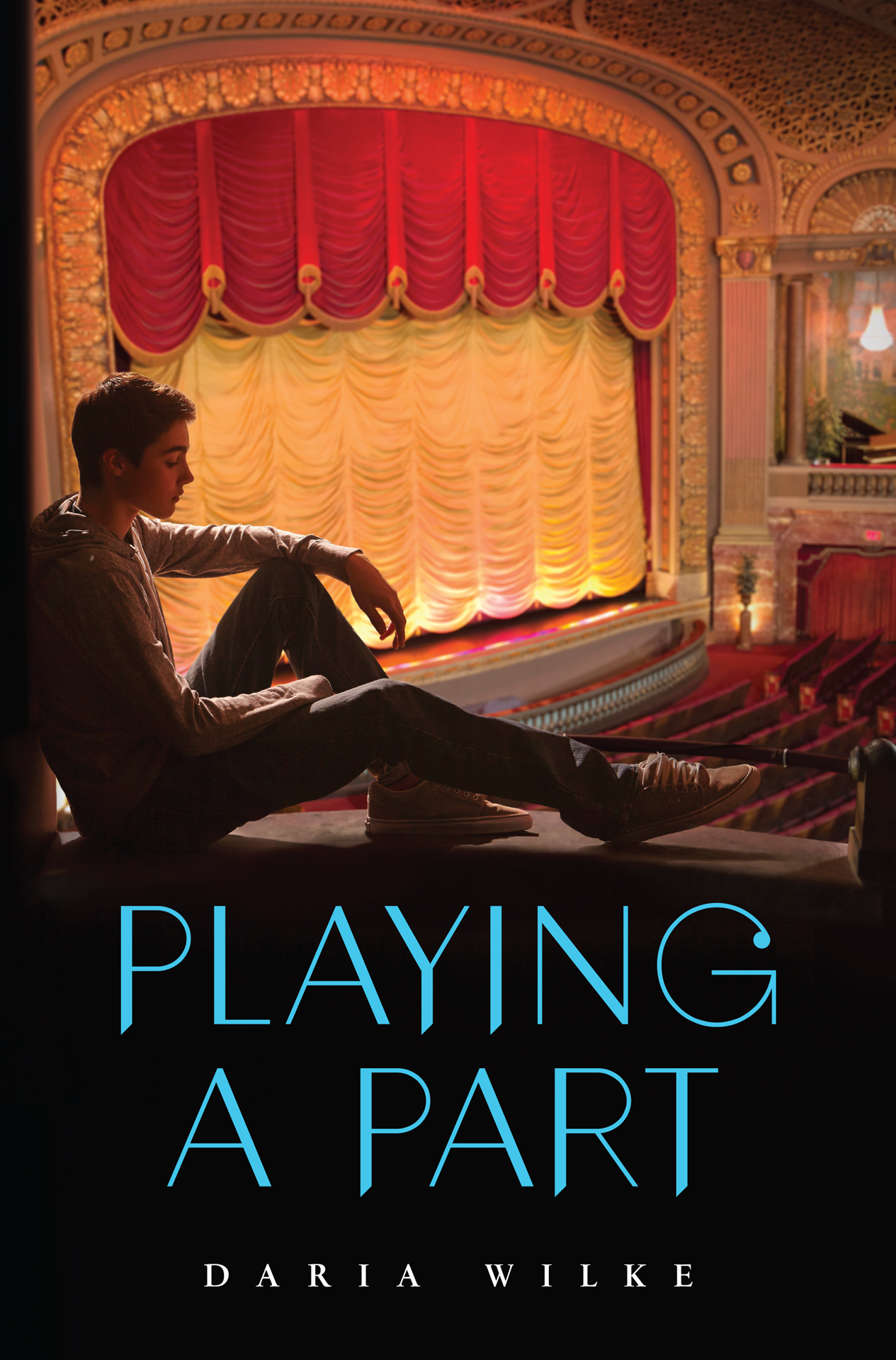
Playing a Part
فرمت کتاب
ebook
تاریخ انتشار
2015
Lexile Score
880
Reading Level
4-5
ATOS
5.5
Interest Level
9-12(UG)
نویسنده
Marian Schwartzناشر
Scholastic Inc.شابک
9780545726085
کتاب های مرتبط
- اطلاعات
- نقد و بررسی
- دیدگاه کاربران
نقد و بررسی

January 26, 2015
Given the relative rarity of English translations of international YA fiction, first-time author Wilke’s coming-of-age story is a bold and welcome addition. Grisha is a Moscow teen who attends high school by day and volunteers at a puppet theater by night. The novel confronts Russian homophobia (and made headlines when it was originally published amid the enactment of laws forbidding the distribution of gay “propaganda” to minors), particularly through Grisha’s encounters with bullies at school; Grisha’s unwillingness to kiss a girl on a dare and his involvement with the theater are enough for the students to tease him, believing he is gay. Grisha’s grandfather also figures importantly as Grisha grapples with his sexuality: “When I’m next to him, I always feel like something’s wrong with me. That I’m worse than I really am.” His uncertainty about his feelings for an actor named Sam unfold gradually, with Wilke allowing space for Grisha to better understand himself. Grisha’s voice is authentic and soulful, and his descriptions of the vibrant world of the puppet theater, his refuge, are sumptuous. Ages 12–up.

January 1, 2015
A boy raised by his parents in a Moscow puppet theater faces the ugliness of homophobia as one of the actors, who is gay, decides to leave Russia for the Netherlands in order to escape it. Grisha is bereft to hear that his friend and mentor, Sam, will be leaving. At the same time, his friend Sashok, who prides herself on flouting gender stereotypes, tells him that she will be having heart surgery, and the longstanding puppet master at the theater, Lyolik, is ousted to make way for someone new. Grisha is an earnest, even sweet-natured, narrator, rendering particularly ugly the harassment he faces from his peers and from his cruel grandfather, who routinely calls Sam a "queer" and Grisha himself a "sissy." It also makes Grisha's age elusive. The language he uses at times seems very young, as when he imagines retaliating against a boy at school "right in his smiling bully face," though the issues he faces suggest a worldliness hinting at a somewhat older teen. This is a minor quibble, however, as readers will be engrossed by the plot hatched by Grisha and Sashok to get Lyolik back and moved by the story's themes and the rich, image-laden language: "The theater starts murmuring, speaking, tramping, and rustling." A lovely, moving novel with a bittersweet conclusion. (Fiction. 12-18)
COPYRIGHT(2015) Kirkus Reviews, ALL RIGHTS RESERVED.

March 1, 2015
Gr 9 Up-Grisha has grown up in the Moscow puppet theater, nurtured by its eccentric mix of seasoned actors, animated puppets, and secret passageways. But outside the theater, Grisha's lack of machismo makes him a target for bullying, and homophobia is driving his favorite actor away from the country. This title focuses on the dreamy world of the puppet theater, but the poetic styling that is supposed to evoke its otherworldly nature does not fully come through in translation, instead leaving a disjointed narrative that reads far younger than the readership who might be interested in gay Russian youth. The translation also stays faithful to traditional Russian naming and nicknaming, which can be confusing to those not familiar with it, as every major character seems to have three or four names. While it's wonderful that this book avoids being an "issue novel" by emphasizing the inner workings of the puppet theater, the conflicts within it fall flat and the characters' struggles with homophobia and gender policing are not integrated smoothly. VERDICT Those looking for insight into how Russian society differs from American with regard to gay acceptance and persecution will not find much in this book, and without that insight, there isn't much to recommend this above any of the better written gay bullying books from the 1990s.-L. Lee Butler, Hart Middle School, Washington, DC
Copyright 2015 School Library Journal, LLC Used with permission.

February 15, 2015
Grades 7-10 Purportedly the first Russian YA novel to be translated into English, this follows Grishka, a theater kid at the Moscow puppet theater. Grishka feels that the theater, with all its grandeur and fantasy, is a more genuine place than the rest of the world: He feels at home there, and everyone he cares for is part of it: his parents; his best friend Sashok; Lyolik the puppet master; and his friend and mentor, Sam. However, Sam's departure disrupts this idyllic world, and Grishka is forced to grapple with change and with the turmoil of growing up, particularly in terms of identity. The hypermasculine culture of Russia, embodied by his oppressive grandfather and bullying classmates, is not especially welcoming to Grishka's creativity, compassion, and queerness. Wilke's novel is grounded by Grishka's journey of self-discovery and struggle with the related interplay of internal and external forces. Schwartz's translation retains the spectacular imagery of Moscow during the holiday season and the magic of the puppet theater.(Reprinted with permission of Booklist, copyright 2015, American Library Association.)

























دیدگاه کاربران